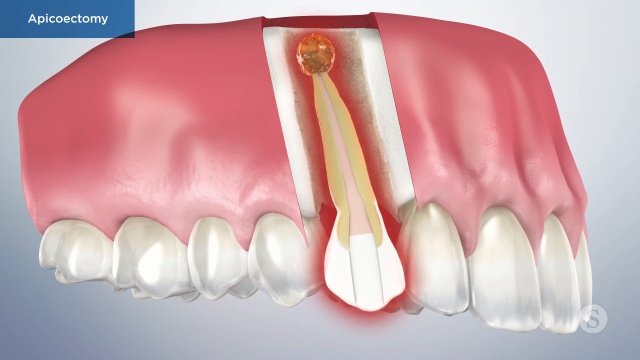
You can undergo a root canal treatment after you develop an infection and inflammation in your tissue. However, you may develop complications that can cause inflammation in your gum tissues, requiring another surgery to correct the inflammation. Apical Surgery Georgetown can treat inflammation from previous surgery, thus saving your teeth and preventing possible future complications. Even though recovery may take longer than root canal treatment, this treatment will give you a better recovery, so you will not need future treatment.
When Do You Need Apical Surgery?
Typically, your doctor will recommend this procedure after a root canal treatment that may have proven insufficient. You may undergo a root canal treatment, but your tooth fails to heal well, leading to reinfections. Surgery will remove the damaged tissue around your teeth to save it, thus avoiding the need to pull it out because of complications. Other reasons for apical surgery may include removing calcium deposits in your root canal, treating fractures, removing teeth with a hole, and treating a tooth with extra roots. Furthermore, your doctor may recommend this treatment for your child if they have a fracture from an impact, thus helping them save their teeth.
What Happens During Apical Surgery?
Before your doctor begins treatment, you may undergo an X-ray test to check your teeth and jaws so your doctor can observe what happens around your roots, bone, tissues, and root canal. You will then have a numbing cream to help you relax throughout the procedure. Your dentist will make an incision in your gums to expose your bone while removing the damaged tissue. After the removal, your doctor cleans your teeth and then seals them with a filling to reduce the possibility of reinfections. You may require another X-ray to check your teeth’ condition and ensure there are no spaces. Your dentist will then stitch your tissues to allow your gums to begin their healing.
How Soon Will You Recover From Apical Surgery?
Apical surgery may take up to 90 minutes, but it may depend on the location of the root to be corrected and its structure. You will likely experience swelling, slight bleeding, and minor discomfort after the procedure, but the symptoms will improve with time. Due to the invasive nature of apical surgery, your recovery may be more painful than root canal treatment. Your doctor may recommend anti-inflammatories to help you with inflammation and pain symptoms as you wait for the pain to lessen within the following days. Also, you can use antibiotics to treat an infection. However, the pain should not stop you from resuming your normal activities. You can also elevate your head to slow blood flow, thus reducing bleeding. While brushing and flossing your teeth, you may need to avoid the treatment area.
Explore more about apical surgery at RR Dentistry today. Your doctor will carefully examine your canals before setting up a treatment plan. Using local anesthesia, the medical team will keep you comfortable during the procedure. Feel free to start your apical surgery. Visit the website to make your online appointment.
